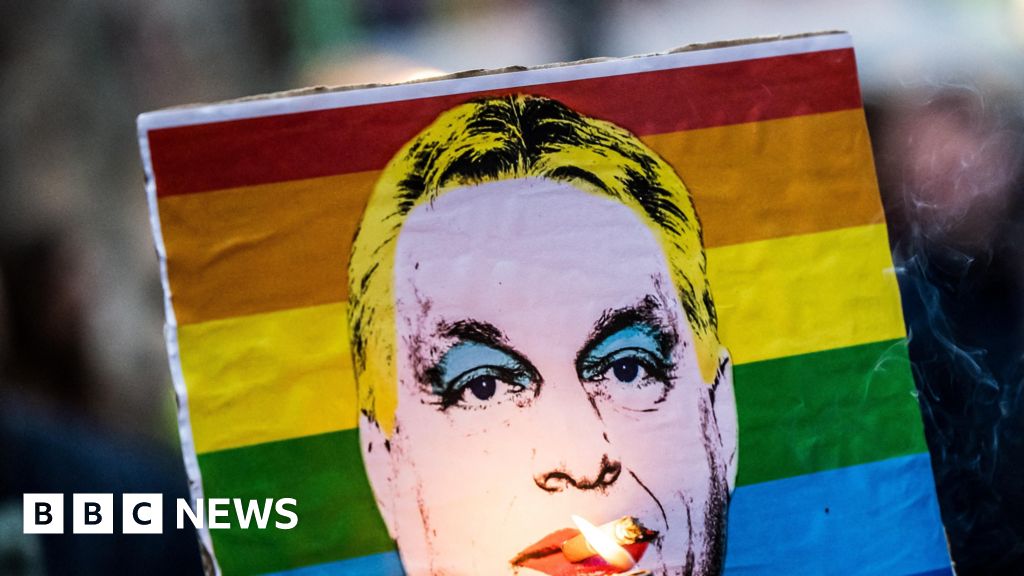“Of course, the police could break up such events, because they have the authority to do so, but Hungary is a civilised country, a civic society. We don’t hurt each other,” Orban told state radio on Friday.
“There will be legal consequences, but it cannot reach the level of physical abuse.”
Attendees risk a fine of up to €500 (£427; $586), with police empowered to use facial recognition technology to identify them.
Organisers could face a one-year prison sentence.
EU equalities commissioner Hadja Lahbib, a former Belgian foreign minister, is in Budapest and expected to join the march, along with dozens of MEPs.
On Friday, Lahbib posted a picture showing her standing with the liberal Budapest mayor Gergely Karacsony in front of a rainbow flag symbolising gay rights.
The Pride march “will be a powerful symbol of the strength of the civil society,” she wrote on X.
Ahead of the Pride, European Commission President Ursula von der Leyen asked the Orban government not to block the march.
Orban was unfazed, asking her “to refrain from interfering in the law enforcement affairs” of EU member countries.
